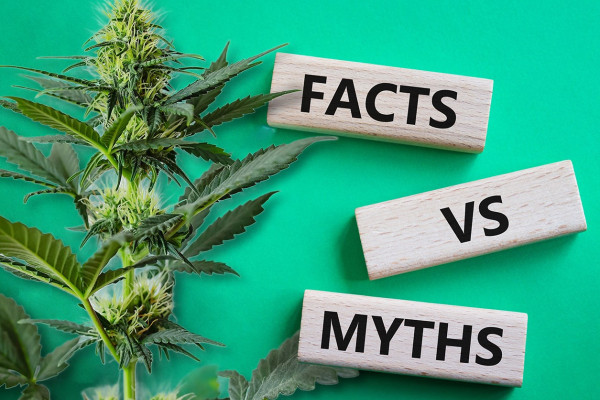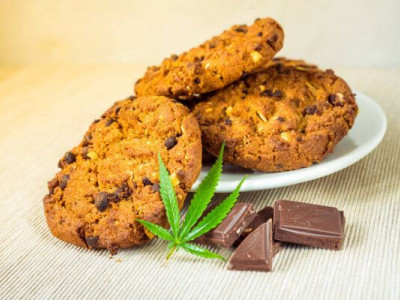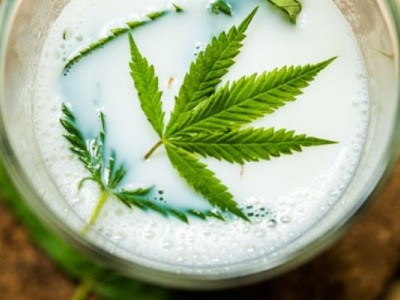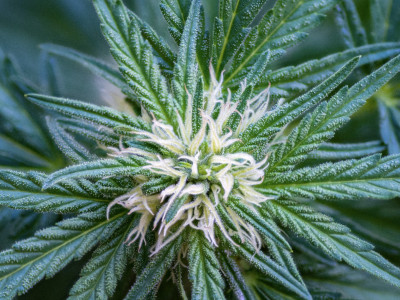0.00 грн.
CheckoutTOP 7 myths about marijuana

Marijuana and its use have long been a topic of debate. The discussions are often accompanied by myths and stereotypes that form a misconception about the plant. Some of these myths have existed for decades, while others have emerged relatively recently. Let's debunk the most popular ones based on facts and scientific data.
The material is for informational purposes only and is based on open sources of information, scientific research, and general statistics. Coffeeshop® does not call for the use of illegal substances. Only your doctor can provide recommendations regarding the use of cannabis.
Myth 1: Marijuana is a “gateway drug”
Many people believe that cannabis use inevitably leads to the use of harder drugs. However, research shows that most people who try marijuana do not go on to use heroin, cocaine, or other substances. This link is more likely to be related to social factors, such as drug availability and environment, rather than cannabis itself.
Myth 2: Marijuana is irreversibly addictive
Fact: Marijuana can be psychologically addictive for some people, but its potential for physical dependence is much lower than that of alcohol, tobacco, or opiates. Studies show that about 9% of users can develop addiction, while the figure for alcohol is as high as 15%.
Myth 3: Marijuana use lowers IQ
This myth emerged after studies showed a decrease in IQ in adolescents who abuse cannabis. However, further research has shown that many factors, such as socioeconomic status, education, and general lifestyle, influence intelligence levels. Adults who use marijuana do not show significant cognitive decline if they use it in moderation.
Myth 4: Marijuana is more harmful than alcohol and tobacco
Some people believe that cannabis is more harmful to the body than alcohol or cigarettes. In fact, alcohol and tobacco claim millions of lives every year, while there are virtually no direct deaths from marijuana. However, smoking marijuana can damage the lungs, just like any smoke inhalation, but this damage is much less than the long-term effects of cigarette smoke.
Myth 5: All varieties of marijuana are the same
There are many varieties of marijuana with different levels of THC (the main psychoactive component) and CBD (a cannabinoid that does not cause euphoria). Some varieties are designed for relaxation, while others stimulate activity. For example, varieties with a high CBD content are used medicinally to reduce pain, anxiety, and inflammation without causing mental changes.
Myth 6: Marijuana destroys memory and attention forever
Cannabis use can temporarily impair short-term memory and concentration, especially when it comes to products with a high THC content. However, these effects are reversible and disappear after you stop using. Marijuana has virtually no effect on long-term memory, unless it is chronic abuse in adolescence.
Myth 7: Marijuana makes people lazy and apathetic
Many people associate cannabis use with the “amotivation syndrome,” suggesting that it makes people lack initiative. Research shows that this claim is greatly exaggerated. Moderate marijuana use does not lead to a decrease in motivation in adults. Laziness is more often caused by individual personality traits or external circumstances than by cannabis itself.
Facts about cannabis
- Cannabis can be useful for medical purposes: it relieves pain, helps with epilepsy, and reduces symptoms of anxiety disorders.
- Scientific studies confirm that regulating the use of marijuana reduces the black market and increases tax revenues.
- Marijuana has a deep history: it has been used in medicine and the textile industry for several millennia.
The myths about marijuana are born out of fear, misunderstanding, and lack of information. Although cannabis is not completely safe, many popular claims about its harm are not true. To form an objective opinion about the plant, it is important to rely on proven data and scientific research.


